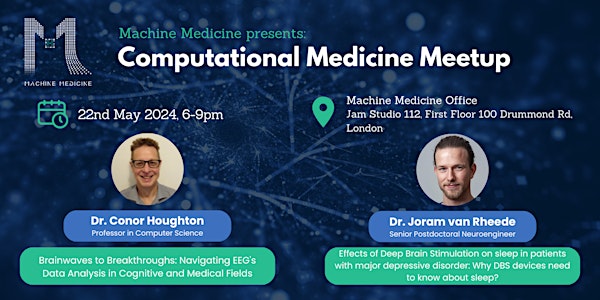
Computational Medicine Meetup
Join us in London for the 3rd Computational Medicine Meetup, to discuss all things tech and healthcare! Free tickets required.
By Machine Medicine
Date and time
Wed, 22 May 2024 18:00 - 21:00 GMT+1
Location
Biscuit Factory Bermondsey
J112 Jam Studios, 100 Drummond Road, London, SE16 4DG London SE16 4DG United KingdomAbout this event
Organised by
This is an event for researchers, experts, and anyone interested in computational medicine or would like to enter this field. We will invite expert speakers to speak about their research and recent advancements in the field.
What is computational medicine? Computational Medicine aims to advance healthcare by developing computational models of disease, personalizing these models using data from patients, and applying these models to improve the diagnosis and treatment of disease.